
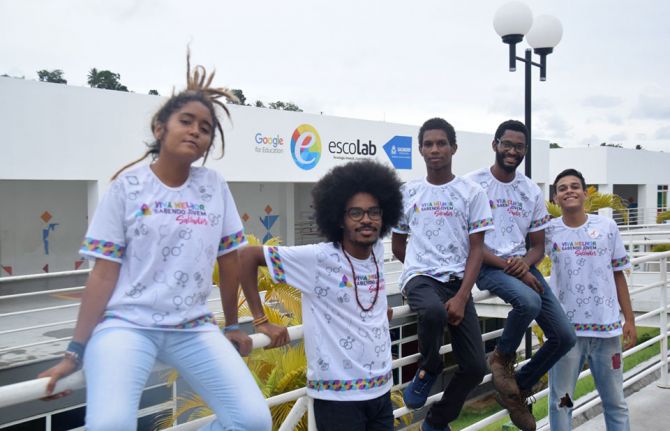
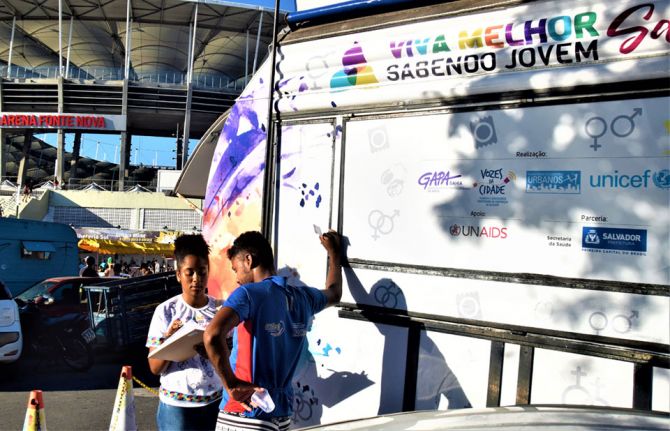
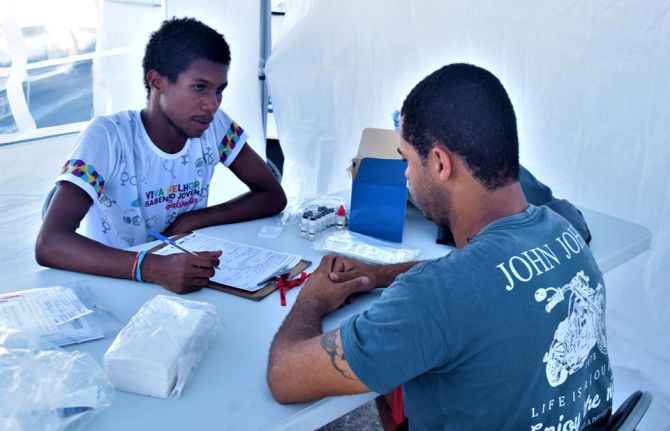
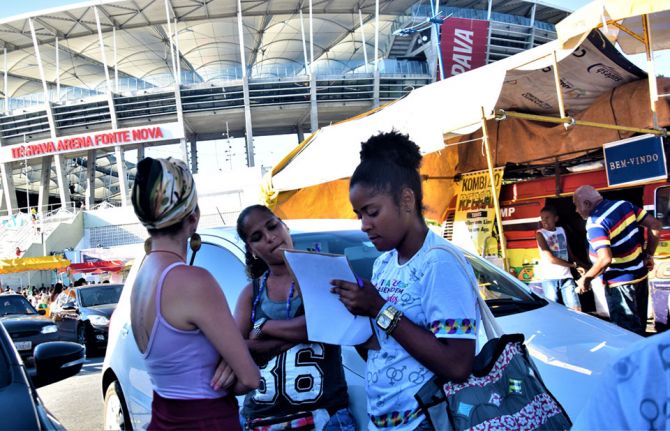
Feature Story
Empowering young Brazilians to talk to their peers about HIV
11 October 2019
11 October 2019 11 October 2019New HIV infections in Brazil increased by more than 20% between 2010 and 2018, so it’s crucial that young Brazilians start talking about HIV and learn how to protect themselves. That’s the aim of a project led by the United Nations Children’s Fund (UNICEF).
Swiping through one of his social media accounts, Jonas da Silva checks out the latest parties and public events in Salvador. He is also chatting online with other young people. They talk about sex, how and if they use condoms with their partners, what they know about HIV prevention and if they have been tested for HIV.
“What’s cool about the project is that we have young people talking to young people. We use our language and slang to address HIV,” he says. “This connection is vital. We can see they trust us, and this is when we know we have touched them with the information they need.”
He and another 30 young people have been trained to work as volunteers in the Viva Melhor Sabendo Jovem (VMSJ) Salvador project. Their goal is to raise awareness among other young people about the importance of HIV testing and prevention. For that, they need to be where their peers are—online and on the street.
The project follows the calendar of traditional street parties and festivals, especially those that attract a large concentration of young people. It also responds to specific demands from key populations by mapping public gatherings where young lesbian, gay, bisexual, transgender and intersex people hang out. With a colourful small truck—the Test Truck—Mr da Silva and his co-volunteers can provide privacy for people who want HIV counselling and testing.
Since the project launched in August 2018, more than 1000 young people aged between 16 and 29 years have been tested for HIV in around 30 outings for the truck. As part of a strategy to promote testing among adolescents and young people, the volunteers also facilitate workshops on HIV and other sexually transmitted infections and host talks about sexuality and sexual health in schools. These events reached more than 400 students in the first six months of the project.
“The VMSJ Salvador peer education methodology makes it possible to engage more young people in these activities. It also helps them to become aware of the importance of HIV prevention and care,” said Cristina Albuquerque, Chief of Health and HIV/AIDS for UNICEF in Brazil. “Young people who get tested during our activities congratulate the initiative and complain that they have very few of these opportunities around town.”
In 2018, according to Ministry of Health estimates, young people aged between 15 and 24 years represented almost 15% of all new HIV diagnoses in Salvador.
“For us, too, the volunteers, this experience is important because we also start to take better care of ourselves, to apply these prevention methods to our lives and to pass the message on to those around us, to our friends and family,” said Mr da Silva.
The project is implemented in partnership with GAPA Bahia―one of the oldest nongovernmental organizations dealing with HIV issues in the country―and counts on the support of the UNAIDS office in Brazil. The young volunteers all went through a rigorous selection process before undergoing a training programme that included topics such as human rights, counselling and information on HIV and other sexually transmitted infections. They were also trained on community-based programmes, the functioning of the public health system and HIV services available in Salvador. The initiative includes a continuous training strategy on related topics.
“One of the most important things I have learned is that we have to respect each other’s choices and that we are here only to assist with information and inputs that we consider most appropriate to that person’s history and behaviour”, said Islan Barbosa, another of the volunteers.
“The project represents an important response to HIV testing demands in the city, especially among key populations, who very often avoid using public health facilities for that purpose. We are taking HIV testing to where these people are,” said Ms Albuquerque.
Related
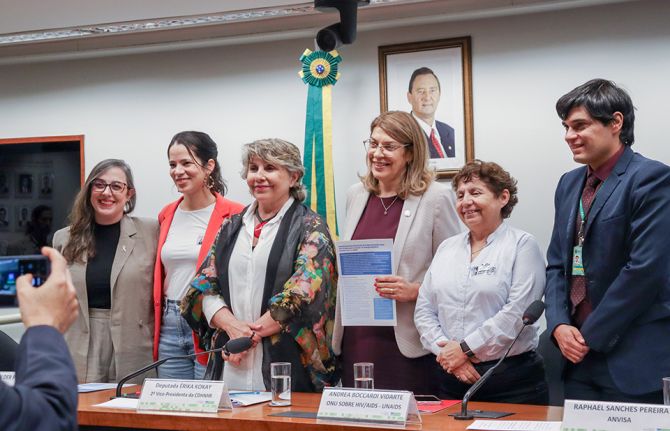 Lower prices needed for new HIV prevention medicine in Brazil
Lower prices needed for new HIV prevention medicine in Brazil

09 September 2025
 “Who will protect our young people?”
“Who will protect our young people?”

02 June 2025

